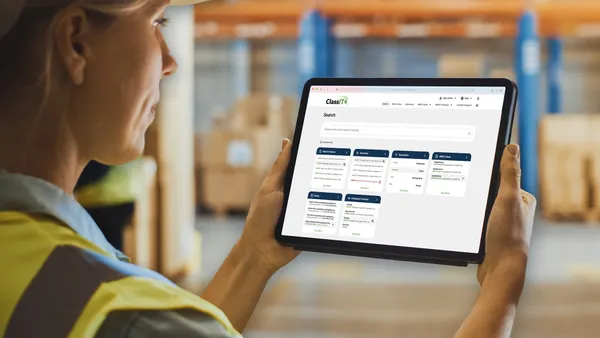Dive Brief:
- The Blockchain in Supply Chain Alliance (BiSCA), an offshoot of the Blockchain in Transport Alliance (BiTA), was announced at the Blockchain in Transport Spring Symposium Monday, FreightWaves reported.
- The new alliance will focus on planning, procurement, transportation and warehousing, with some overlap with BiTA, whose members include prominent 3PLs like UPS and FedEx.
- The new alliance will consist of 13 members, which include 9 permanent spots and 4 rotating spots, according to FreightWaves. The first two members are the University of Denver and the U.S. Air Force.
Dive Insight:
For some industries — like biopharma — blockchain is still hype. But for other industries' supply chains, the new BiSCA could be the catalyst companies need to start experimenting with blockchain to see if it's a good use of time, money and other resources.
Over the past year, there's been a flurry of activity in the blockchain space to complete financial transactions in ocean shipping, trace beef, trace mangoes, create transparency in the coffee supply chain and prove authenticity of precious metals and luxury goods as they travel through the supply chain.
An organized blockchain consortium to focus specifically on the supply chain instead of one particular industry could accelerate blockchain adoption for the companies seriously interested in the tech.
The advantage of a supply chain alliance is twofold: first, it can draw from other industry alliances and pilots and determine best use cases for blockchain throughout all supply chains. Second, it can become the point of contact for regulators looking to understand blockchain in the supply chain — which, in fact, they're already doing. A blockchain alliance can aptly communicate supply chain and industry needs to Congress and make sure appropriate regulations or standards are passed.
Even the biopharma industry, whose supply chain is notoriously complex, could find a way to use blockchain with the help of such an alliance.













